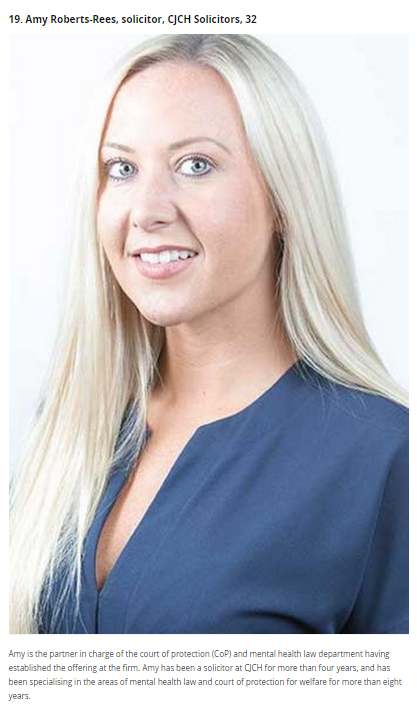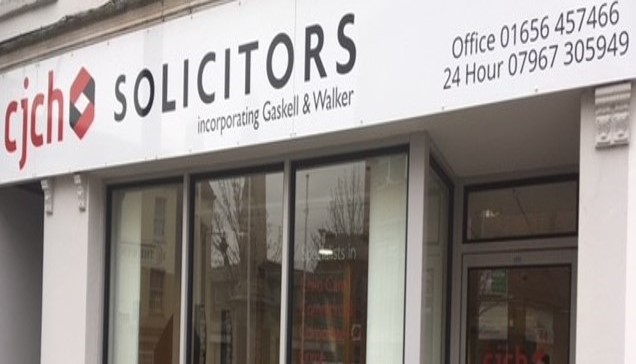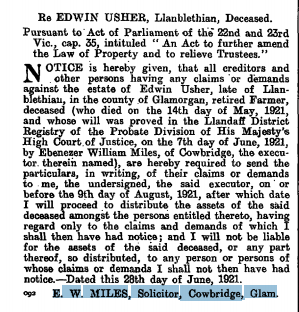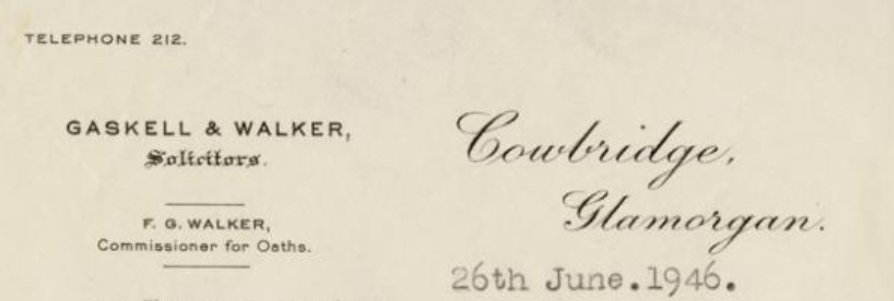As our Court of Protection team has been nominated for the Wales Legal Awards 2022 which will take place next week. We had a chat with Connor Hegarty, Solicitor in our Court of Protection department
 What is the Court of Protection and who does it help?
What is the Court of Protection and who does it help?
The Court of Protection deals with cases concerning people who have been assessed as lacking capacity to make a specific decision. Where a person lacks capacity, the Court can make a best interest’s decision on the individual’s behalf. These can include the most serious and life-changing decisions including where someone lives, to how they interact with wider society, to considering withdrawal of life-sustaining medical treatment or nutrition/hydration. As well as dealing with cases concerning a person’s welfare, the Court also hears challenges to an individual’s deprivation of liberty pursuant to Article 5 ECHR.
As well as resolving disputes as to what might be in someone’s best interests, the Court also deals with the appointment of Deputies and Attorneys under Lasting Powers of Attorney.
What circumstances would lead to someone being considered as ‘lacking mental capacity’?
A person is considered to lack mental capacity for a specific decision if they met the legal test set out in the MCA 2005. Put simply, this is where a person has a cognitive impairment, and due to that impairment, cannot understand relevant information for a decision, use/weigh up that information, retain it, or communicate a decision on the specific subject. Examples of a cognitive impairment could be a brain injury, dementia or related conditions, or more severe learning disabilities. Although it is a legal test, assessments for capacity are often carried out by a health or social care professional.
It is always important to remember that lacking mental capacity is always decision specific.
What are some examples of decisions made in the Court of Protection?
The Court can make a best interests decision concerning a wide variety of areas affecting a person’s life, where there is evidence to suggest they lack the capacity to make the decision themselves, including:
- Conducting legal proceedings
- Where they live
- The care they receive
- How their property and finances are managed
- Who they have contact with, or how contact is regulated
- How they access the internet and social media
- Whether they can consume alcohol or smoke
- The medical treatment they receive, including serious medical treatment, and decisions about vaccinations
- Management of specific or long-term health conditions, such as diabetes
- The appointment of a Deputy or Attorney for health/welfare or property/financial affairs
What does a solicitor who specialises in Court of Protection do and when should you speak to one?
As specialists acting in the Court of Protection, the team of solicitors at CJCH can advise you on any areas that affect capacity law or best interests. We can advise on any disputes arising on whether a person has capacity for a specific decision, how a person’s personal welfare is being managed and challenges to a deprivation of liberty. We also have extensive experience advising on capacity and best interests concerning medical treatment, including the most serious cases before the High Court.
What is a Deputy?
A Deputy is a court-appointed individual to act in a person’s place to make decisions in their best interests, where the individual has been assessed as lacking capacity. Deputies can act in two areas, for health/welfare (less common) or property/financial affairs (more common). To be appointed a Deputy, the person seeking to act in this role must make an application to the Court.
Who can become a Deputy? Are there any rules surrounding this?
A Deputy must be over the age of 18. A Deputy is typically a relative or close friend of the individual concerned, but not always. Some Local Authorities will act as a Deputy for individuals in their area. There are also “professional” Deputies who act for a fee. There can be more than one Deputy appointed.
Deputies will be bound by obligations placed on their actions by the Mental Capacity Act 2005. They must also prepare an annual report detailing how they have acted in the individual’s best interest.
What is a Lasting Power of Attorney (LPA)?
An LPA is a legal document that lets a person provide authority to another to assist them in making decisions about their health/welfare or property/financial affairs.
A crucial distinction between Attorneys and Deputies is that the Attorney must be appointed by the individual concerned when they have capacity to do so. If a person is assessed as lacking capacity, they cannot lawfully appoint an Attorney.
Who can become an Attorney? Are there any rules surrounding this?
Similar to Deputies, an Attorney must be over the age of 18, and is typically a relative or close friend of the individual concerned, but not always. There are also “professional” Attorneys who act for a fee. There can be more than one Attorney appointed, who can act together or separately. For example, a parent may appoint more than two children to act as Attorneys to assist with decisions on finances.
What is the Office of the Public Guardian?
The Office of the Public Guardian is the body that oversees Deputies and Attorneys in England & Wales and investigates any complaints or concerns on how they may be acting.



 Disturbingly, domestic abuse cases have increased over the coronavirus lockdown period, but the team at
Disturbingly, domestic abuse cases have increased over the coronavirus lockdown period, but the team at 


 Purchasing a property at auction is not something that just exists on ‘Homes under the Hammer’ – it’s an exciting process to buy property! Whether purchasing a buy-to-let or as a project to do-up, it’s important to be aware of the issues that can arise in this process.
Purchasing a property at auction is not something that just exists on ‘Homes under the Hammer’ – it’s an exciting process to buy property! Whether purchasing a buy-to-let or as a project to do-up, it’s important to be aware of the issues that can arise in this process.












